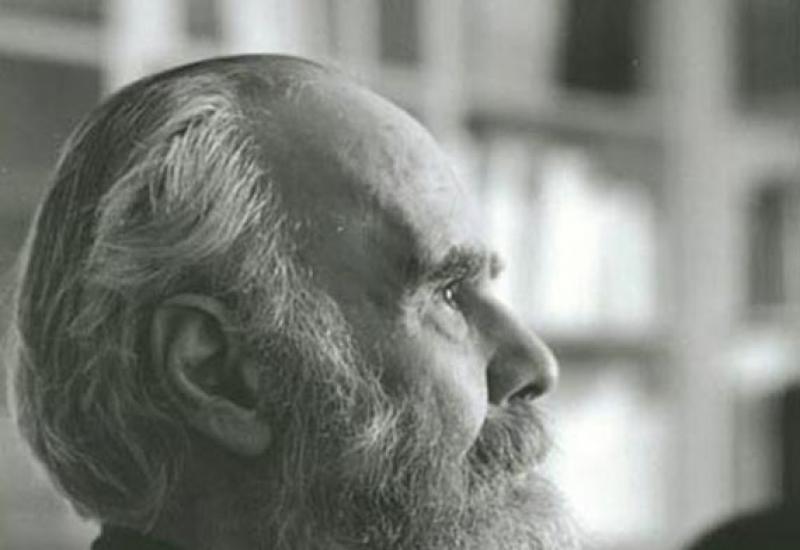What is the difference between confession and repentance. Conscience is cleared by shame, or where to find a recipe for repentance. What is the basic rule of confession
True repentance in Orthodoxy is a necessary condition preceding the Sacrament of Confession and Communion. Jesus Christ warned all people that without true repentance they would perish. (Luke 13:5)
Repentance and confession have a beginning, but there can be no end while we are alive. John the Baptist began his ministry with a call to repent, for the Kingdom of God is already at hand. (Matthew 4:17)
Every Orthodox believer is obliged to understand the difference between repentance and confession, and why the second is impossible without the first.
Repentance and confession - what's the difference?
Having committed a bad act, be it shouting, deception, envy or hypocrisy, a true believer will feel a reproach of conscience through the Holy Spirit. Having realized sinfulness, a person, at the same moment or at home during prayer, asks God and man for forgiveness, sincerely repenting of the deeds committed.
How to pray for repentance:
Repentance for sins
Repentance does not involve repeatedly returning to a perfect sin; it is a true renunciation of sin and a decision not to do it again.
The smartest of books, the Bible, gives a very harsh definition in this case, comparing a person who repents and returns to his bad deeds to a dog who returns to his vomit. (Proverbs 26:11)
An Orthodox Christian does not need a priest to repent; he himself consciously condemns the wrongdoing and decides never to do that again. The Sacrament of Confession takes place directly before God, but in the presence of a priest, for it is said in Holy Scripture that Jesus is where several people gather. (Matthew 18:20)
Important! Confession is the final act of repentance. Confessed sins no longer have spiritual power in the life of a Christian; it is forbidden to even remember them. After confession, a person is clean before God and is allowed to receive the Sacrament of Communion.
About the Church and the Sacraments:
True repentance in Orthodoxy through the Sacrament of Confession allows one to partake of the Body and Blood of Jesus, to be filled with his power and grace, and to receive entry into the Kingdom of Heaven.
Priests on repentance
According to Isaac the Syrian, sincere repentance is a wide gate for God's grace, and there is no other way.
Silouan of Athos argued that to those who dislike their sinful deeds, God will forgive all sins.
In his “Letters to Spiritual Children,” Abbot Nikon begged the Orthodox believers remaining on earth to constantly repent, considering themselves sinful tax collectors, begging God for mercy.
 Repentance
Repentance
In the book “Paths to Salvation,” Theophan the Recluse writes that through repentance, a sinner learns to love his neighbor, because with forgiveness there is no longer pride and conceit, and if there is, then there is no repentance. Everyone checks themselves.
Hegumen Gury also attached great importance to repentance, claiming that only through repentance can the existing world be cleansed.
Saint Ephraim the Syrian compares repentance to a crucible, in the fire of which simple metals are melted, and gold and silver come out.
Jesus left two main commandments on earth - love for God and man.
Three possible paths of repentance
Only angels do not fall, and demons cannot rise before the Creator, but man is given both to fall and to be understood. Human fall is not a lifelong sentence. Through sins, Jesus develops Christian character, which is characterized by:
- repentance;
- obedience;
- tolerance;
- worship of God;
- love for one's neighbor.
No man has yet been born on earth, except the Savior Jesus Christ, who would live his life in complete holiness, without sinning.
A striking example can be the life of the Apostle Peter, who in anger cut off a soldier’s ear, transgressing the commands of Jesus, whom he then denied three times. Christ, seeing the sincere repentance of His teaching, made it the cornerstone of the Christian church.
Why did Judas betray and hang himself, his conscience was tormented, but there was no repentance and faith; would the Lord really not have forgiven him for sincere repentance?
Important! Repentance before God in solitude can correct many sins, let go of any shame that holds and prevents one from coming to confession.
Only in dead hearts there is no shame, regret for what they have done, repentance and understanding of the gravity of the offense. As soon as a person repents, angels sing in Heaven. (Luke 15:7)
Unrepentant sin is like a disease; if you do not immediately get rid of bad habits, then over time the whole body will rot. That's why postponing repentance until later is very dangerous.
During the day, the Almighty many times gives a person the opportunity to repent of his offense:
- immediately after the sin has been committed;
- during confession.
When repenting, a prayer is read every time a Christian remembers some sin committed during the day.
Heavenly Father! I come to You in prayer, aware of all my sinfulness. I believe Your Word. I believe that You accept everyone who comes to You. Lord, forgive all my sins, be merciful to me. I don't want to live my old life. I want to belong to you, Jesus! Come into my heart, cleanse me. Be my Savior and Shepherd. Guide my life. I confess You, Jesus Christ, as my Lord. I thank You that You hear my prayer, and I accept Your salvation by faith. Thank You, my Savior, for accepting me as I am. Amen.
Does God forgive everyone?
The Apostle Paul emphasizes that an unrepentant heart heaps wrath on the head of the sinner. (Rom.2:5-6)
The devil will do his best to prevent repentance, showing that sin is not so terrible, there is nothing to be ashamed of and everything will pass by itself.
In repentance, Christians must not only mentally repent of the sin committed, but at the same time forgive the people who contributed to the wicked transgressions.
 Repentance in the temple
Repentance in the temple
Hardened sinners rob themselves, putting an end to their forgiveness due to many atrocities. Some of them fall into despair and despondency, which is a lack of trust in the Creator and a new sin.
Fallen people do not even realize how merciful the Father is in Heaven, who is ready to accept into His arms everyone who repents of their sins. The Lord forgives every sin for which a person sincerely repents.
Another segment of people who rarely repent are self-righteous Christians. They have already put crowns of holiness on their heads, forgetting the words of Jesus that everyone on earth is sinners.
In the social sphere there is no such word as “repentance”; a person who has committed a bad act repents and asks for forgiveness. But here there is no presence of the Holy Spirit and no awareness of one’s sin before God. From the point of view of Orthodoxy, repentance and repentance have the same meaning, when a sinner not only realizes his sin, he begins to hate it.
In the event of deception, theft, murder, a fallen Christian steps over pride, shame, cowardice and asks for forgiveness from those who suffered, tries to compensate for the losses, and only then goes to confession and brings his sin before the throne of the Creator.
Jesus knows the fallen nature of this world, but man, created in the image and likeness of the Creator, is called to live in the Kingdom of peace, peace, prosperity in love and health already on earth. The Kingdom of Heaven descends to earth by the will of God, by His grace, for those Orthodox believers who realize the power of repentance and confession.
For an unbaptized person there is no repentance in Orthodoxy, there is no God, the gates of grace do not open. Just as it is difficult for a sick person to recover from a terrible disease without the help of doctors, so it is impossible for an unbeliever to know the mercy and forgiveness of the Almighty without Orthodox baptism.
Those people to whom the grace of understanding Confession and Communion is not open, say that Orthodox Christians live well, repent and sin, and repent again.
Important! During repentance, which in Greek means change, the fear of God comes, and a feeling of one’s uncleanness before God comes. Any one causes self-loathing and a desire to quickly cleanse oneself in the face of the Creator.
Having sincerely repented, people will never return to their previous sin; they constantly control their words, emotions, and actions, conforming them with the commandments of the Lord.
 Forgiveness in Christianity
Forgiveness in Christianity
There is no need to delude yourself, sometimes even the most faithful children of the Creator fall morally, mentally, physically, but they always have God’s hand nearby, blessed help that comes through repentance and confession.
Why repent if God knows all man's sins?
The Creator created on earth not robots, but people who have feelings, emotions, spirit, soul and body. The Almighty sees all the sins of man, committed not according to His will, but with the complicity of demons.
Until a person repents, the devil has power over him; the Creator does not touch an unclean, sinful soul.
Only by the will of an Orthodox believer does the Savior grant him salvation and grace in earthly life, but for this a person needs to confess his sins, cleanse himself of them, like weeds, and repent. Sincere repentance is heard by God and the devil, in front of whom all doors are slammed and he is deprived of all rights to the once repentant sinner, and after repentance - to the righteous.
Is there repentance after death
In his message to people, Jesus Himself gives the answer to the question of whether a person can be freed from the consequences of fallen life after death. The answer is terrible and categorical for sinners: “No!”
Read carefully the letters to Hebrews, Galatians, and Corinthians! In each Gospel, the apostles convey the words of Christ that what a person sows, that he also reaps. The law of sowing and reaping says that the sinner will reap 30, 60 and 100 times more than he sows. (Galatians 6)
The Apostle Luke clearly writes that without repentance it is impossible to see the Kingdom of God. (Luke 3)
There, Matthew conveys the words of the Savior that only by bearing worthy fruit of repentance can one be saved. (Matthew 3:8)
A stubborn, unrepentant heart gathers the fruits of wrath on the day of Judgment, which no mortal born on earth will escape. This terrible truth is confirmed by John of Kronstadt, saying that, having died, leaving earthly life, the sinner is no longer given the opportunity to change something, he goes to hell.
Important! After death there is no repentance, confession and communion of the Holy Blood of Jesus, which is the entrance ticket to heaven for true believers, God-fearing Christians.
Fallen people living on earth without the grace of God do not even understand how they are robbing their souls. A person cannot help but understand that he is sinning, self-justification of his actions does not bring consolation, sin, like a splinter, will spoil the enjoyment of worldly pleasures.
Drowning in self-love and pride, sinners plunge deeper and deeper into the swamp of voluptuousness, not realizing that the hour of Judgment will come. It will be too late.
Metropolitan Anthony of Sourozh on repentance
Conversations on the spiritual life of an Orthodox Christian (practice of Orthodoxy)
CYCLE 1 “BEING A CHRISTIAN”
TOPIC 1.4 “Repentance as a commandment: the first call”
QUESTIONS :
1. Repentance as a commandment. Its essence and meaning: What was the Lord talking about?
Distorted understanding of repentance. Causes.
Repentance and confession: what is the difference? Difficulties on the path of repentance.
1. “In those days John the Baptist comes and preaches in the wilderness of Judea and says: repent (Matt. 3:1-2)
There was a call to repentance first call, the first sermon of Christ: “From that time Jesus began to preach ( Gospel of the Kingdom of God ) and talk: repent, for the kingdom of heaven is at hand" (Matt. 4:17) , "repent and believe in the gospel" (Mark 1:14-15)
- “Create worthy fruit repentance» (Matt. 3:8)
- “If you do not repent, you will all perish the same way.” (Luke 13:3,5)
- “Repent, and let each of you be baptized in the name of Jesus Christ for the forgiveness of sins; and receive the gift of the Holy Spirit (Acts 2:38)Question : what should we repent of after baptism?
___________________________________________________________________________________________________________________________________________________________________________________________________________________________________________________________
- « Repentance- a person’s trepidation before the gates of heaven" (St. Isaac the Syrian) - anticipation
Abba Isaiah was asked: “What does repentance consist of?” He answered: “The Holy Spirit teaches us to shun sin and more don't fall into into it" ( Flower garden )
- “The beginning of turning to Christ lies in the knowledge of one’s sinfulness, one’s fall; from such a view of himself, a person recognizes the need for a Redeemer and approaches Christ through humility, faith and repentance,” “He who is not aware... of his fall, of his destruction cannot accept Christ... to be a Christian.” (St. Ignatius Brianchaninov)
- “True repentance is not just regret for the sins committed, but a complete turning of one’s soul from darkness to light, from earth to heaven, from oneself to God. Without this complete turning, repentance is nothing more than flirting with God and with one’s soul. But they don’t play with God.” (St. Nikolai Serbsky "One hundred words about the love of truth")
- “True repentance is to realize your sins, experience pain for them, ask God for forgiveness and after that confess. In this way, divine consolation will come to a person,” “for a person who struggles, repentance - endless crafts» (St. Paisius the Svyatogorets)
- Repentance- the basis of spiritual life and the beginning of the Kingdom of Heaven
How is repentance different from repentance? Word " repentance» - μετανοέω (metanoeo)- means “to change your mind, way of thinking”, change your vision, understanding of the meaning of life and its values. Repentance, in contrast to repentance, presupposes a deep rethinking of everything at the root, a change not only in the subject of aspirations and concerns, but a qualitative change in the mind itself, insight. And the word "repentance" - μέλομαι (melome)- means “to take care”, indicates a change in the subject of care, aspirations, care, a change of intentions. What happened to Judas ( Matt. 27:3–5 ) - repentance without repentance, without change in essence.
| Two sides of repentance - sorrow and joy | |
| - narrow path, “narrow gate” (Matthew 7:13) - many sorrows - inconveniences Repentance should never be accompanied by despair, despondency or depression of spirit - this gives rise to distorted ideas about repentance | - “In the world you will have tribulation; but take heart: I have overcome the world." (John 16:33) and you will be sad, but your sorrow will turn into joy.” (John 16:20) – the path to finding joy, peace and tranquility - “Rejoice always. Pray without ceasing. Thank you for everything. For this is the will of God in Christ Jesus for you.” (1 Thess. 5:16-18) - “Christ is everything. He is joy. He is life. He is light, true light, which allows a person to rejoice, see everything and everyone, worry about everyone... And far from Christ: despondency, melancholy, nerves, anxiety, memories of the wounds of life, oppression...” (Venerable Porfiry Kavsokalivit) |
| “And you will find rest for your souls; For My yoke is easy and My burden is light" (Matthew 11:28-30) “Put your sin before yourself and look to God beyond your sins.” (St. Anthony the Great) |
What is repentance associated with (properties and signs of repentance):
1) repentance is work for cultivating paradise in heart. Wed:
- “And the Lord God took the man and put him in the Garden of Eden to cultivate it and keep it.” (Gen.2:15-16) – commandment cultivate Garden of Eden;
- “The Kingdom of God will not come in a noticeable way, and they will not say: behold, it is here, or: behold, there. For behold, the kingdom of God is within you.” (Luke 17:20-21) – cultivation hearts;
2) the beginning of Christian life, Christian new existence- being in Christ;
3) change in life: from willfully sinful, self-loving and self-sufficient - to life according to the commandments of God, in love and desire for God; new way of life;
4) human change crazy, turning away from sin and wanting to unite with God (“A we have the mind of Christ» (1 Cor. 2:14-16). With a change of mind - change hearts;
5) personal decisive rejection sin and the desire to live life in accordance with the will of God; desire to remain clean;
6) healing damaged nature, return to a normal state, to the Prototype of God; purification of the Image of God in oneself;
7) restoration of connection with God, reconciliation with God (you need to repent to someone);
8) this creation(a plan with a schedule of requirements and clear regulation is inappropriate; templates and mechanics are alien to repentance);
9) growth in love - frees us from the very need to choose between good and evil. The lover does not choose- he acts out of love;
10) repentance is impossible without meeting God;
11) this is not a single action, but a state of mind and subsequent actions, constant work, efforts so as not to repeat the sin; repentance originates deep in the heart;
12) not just self-pity, or depression, or an inferiority complex, but always the consciousness and feeling that communication has been lost, and immediately the search for and even the beginning of restoring this communication. Here came prodigal son into yourself and says: “This is the state I’m in. But I have a father, and I will go to my father! If he had simply realized that he was lost, this would not have been Christian repentance. And he went to his father! Repentance is regret for lost love." (Bishop Athanasius (Evtich);
13) repentance - "second baptism", "renewal of Baptism." “A righteous man will fall seven times and rise again” (Prov. 24:16);
14) “The work of repentance also includes patiently enduring insults. “Likewise, whoever tries, of his own free will, to patiently endure annoyance, reproach, dishonor and deprivation for the sins he has committed, he will become accustomed to humility and labor, and for their sake his sins will be forgiven, according to the word of Scripture: “Look at my suffering and at my exhaustion and forgive all my sins" (Ps. 24:18)” (St. Barsanuphius the Great and John the Prophet);
15) “It helps a lot to those who are in a state of constant and true repentance, deep thinking about our purpose . Who were we from the beginning of our creation, when wickedness and similar passions had not yet captivated the soul, where have we fallen and where should we strive by the grace of Christ? If such reflections accompany us and are inseparably present with us, we will never succumb to the anger and challenge that the unreasonable principle and the law of depravity throw at us" ( Elder Joseph of Vatopedi , “Athos Conversations”); those. important search for meaning: what and why we do;
16) the saints asked God: “ Grant me complete repentance"(cf. "Lord, accept my name in repentance" ( Zlatoust ). True repentance is the keys; the path leading to the Kingdom of God.
CONCLUSIONS : ___________________________________________________________________
______________________________________________________
______________________________________________________
______________________________________________________
______________________________________________________
______________________________________________________
______________________________________________________
WHAT IS THE DIFFERENCE between REPENTANCE and CONFESSION Hegumen Joasaph (Peretyatko) Repentance is a long-term act, which throughout life should constantly disturb our soul. Our thoughts, our actions during the day are wrong. Repentance is to repent of your passions every minute. Confession is the final act of repentance. In confession, we talk about those sins for which we have already internally repented, which we have mourned. Here we ask God to forgive our sins. But the feeling of repentance itself should arise not only during confession, it should always be present in us. In Orthodox literature, there are seven deadly sins, committing which a person will certainly go to hell. Among them, for example, is pride. It is quite obvious that it is extremely difficult to overcome this passion, that true humility is the lot of great ascetics. So, it turns out that we are all “firewood for hell”? The classification of sins is a favorite pastime of Catholic scholastics. They highlighted not only mortal sins, but also sins against the Church, sins against the commandments of God, etc. There were a myriad of such classifications. The only place in the Holy Scriptures where one can find a “justification” for the existence of mortal sins is the epistle of St. John, who says: There is sin leading to death... ...But there is sin not leading to death (1 John 5:16). But no list of “deadly sins” is given here. Actually, the same thought is heard in the words of the Lord: blasphemy against the Holy Spirit will not be forgiven. There is no talk here that some actions and sins lead to going to hell. We are talking about those people who are so entrenched in sin that they have become incapable of repentance. Therefore, in essence, all sins are mortal. Any passion that a person has cultivated in his soul can lead him to sad consequences. A person cannot get rid of sins only by his own efforts. The grace of God is definitely needed. It is the Lord who saves us out of His mercy. If God judged truthfully, not a single living soul would be saved. But God is not only a strict Judge, but also a merciful Father. His mercy is manifested in the fact that He gives us the opportunity to repent. In the Sacrament of Confession, if a person comes to it with due diligence, with awareness of his sins, all the sins that the person confessed to are forgiven. There are sins that are a consequence of a person’s sinful state. One of them is pride. The Holy Fathers advised to fight this sin with the opposite virtue - humility. It is impossible to defeat pride in 1 year or 10 years. For this you need to fight all your life, i.e. teach yourself humility. And what fruits we will achieve in this struggle is not for us to judge, but for God. And if at some moment we are overtaken by despondency, that we are struggling, but there are no obvious results, in this case the holy fathers advised us to remember that God is a merciful Judge, and our salvation depends to a large extent on Him, but also to no less degrees from our determination to fight and save ourselves. And we’ll leave the assessments to God’s judgment.
Archimandrite Jonah (Cherepanov) From time to time, the list of sins resembles a photocopy from the last confession. Does it make sense to repent of sins that we constantly repeat? A person, having believed and become a church member, often after the first confession leaves the most gross and serious sins, which clearly “drag him to the bottom” and interfere with leading a spiritual life. But, unfortunately, there remains a lot of “little things”, small habits that have literally grown into our nature and have become part of our lives over the years. They are the most difficult to deal with; they make up most of the “photocopies” of previous confessions. This problem in spiritual life is spoken of in one of the prayers to the Mother of God for the coming sleep: many times I repent... and every hour I do the same again, i.e. I repent many times, but after some time I do the same thing again. Probably, the Lord, in His mercy, does not allow us to immediately get rid of our “favorite” sins so that, according to the word of St. Seraphim of Sarov, do not fall into the even greater sin of arrogance, that is, do not begin to admire your imaginary righteousness. Anyone who wants to succeed in spiritual life needs to remember two things: what is in us is only sins, and what is good is given to us by the grace of God. Therefore, there is no need to despair that it is not always possible to live according to the commandments, bringing to mind again the words of Seraphim of Sarov: “virtue is not a pear, you can’t eat it right away,” humbly asking the Lord for help in correcting and, most importantly, more often resort to the Sacrament of Confession, since it provides not only forgiveness of sins, but also gracious help in the fight against them. When is it better to confess in preparation for communion - at the evening service or in the morning? After all, if you confess in the evening, before the morning you will certainly have time to sin “in little things,” and if you leave confession until the morning, you will miss half of the liturgy while standing in line...
It is best to follow the tradition established in the temple you are visiting. But if there is a choice, then it should be remembered that the Sacraments of Confession and Communion are not interconnected. In Greece, for example, not every priest can confess, but only those who have a special blessing from the bishop, and parishioners confess to their confessor, who may not serve in their parish, as necessary. In our Church, every priest can make confession, and therefore it is highly advisable to have a confessor serving in your parish, and consult with him on when it is best to begin this Sacrament. From a practical point of view, it would be ideal to confess not during the service, but, for example, before the start of the liturgy, or, in extreme cases, during the evening service. Immediately before communion we hear the prayer: “You, Lord, came into the world to save sinners, but I am the first of them.” We will never be completely ready to worthily accept this greatest Sacrament; we receive communion not because we are righteous, but because we are sinners and need help and mercy. It is much more dangerous if we receive communion with the feeling that we are ready for it and deserve it.
CONSCIENCE IS CLEARED BY SHAME, or WHERE TO FIND A RECIPE FOR REPENTANCE
“Why is the Church making me repent? I don’t come to church to feel like a nonentity or a monster all the time,”— is such a reaction to the call to repentance and confession groundless? Indeed, how not to “burn out” when you are required to constantly rekindle the feeling within yourself? "I am a sinner"? Or does God expect something else from man? What is REPENTANCE - a scrupulous search and listing of sins or something completely different? The rector of the Pyatnitsky metochion of the Holy Trinity Sergius Lavra, associate professor of the Moscow Theological Academy, editor-in-chief of the Bogoslov.Ru portal, Archpriest Pavel Velikanov, talks about confession and repentance.

“Seasonal” repentance?
— Father Paul, is it probably much more difficult for modern people to accept the idea of repentance than for our ancestors? Since, say, the holy fathers of the first centuries of Christianity wrote about repentance, living conditions have changed greatly...
“Today, a worldly person does not really need to talk about the constant cleansing of the heart, which the saints wrote about. We usually have a different problem: with what shovels, with what bulldozers can we remove from our soul all the rubbish that flows there like a river, pours into our hearts from TV, from the Internet, from communication - from everywhere? Modern man spiritually finds himself in a kind of “sewer stream,” and it is impossible for him not to be saturated with all this. Therefore, we are talking rather about the minimum: about keeping the heart alive.
Although the Apostle Paul says: to the pure all things are pure. And it is no coincidence that Saint Theophan the Recluse wrote at the end of his life: “The more I live, the more I am convinced that there are no bad people.” But to feel this way, you have to be Theophan the Recluse, you have to grow to this state...
The task at which the Christian constantly works is to live in the world and remain undefiled by the world. The fruit of this work is repentance and confession. On the one hand, as evidence of those mistakes, those mistakes and defeats that occur in this struggle. And on the other hand, as a constant raising of the bar for the quality of our Christian life: we begin to demand from ourselves what we did not demand before.
— Fasting is called a time of repentance. It turns out that raising the bar is “seasonal”?
— Life in the Church, like life in general, is rhythmic. So, Lent within the framework of this rhythm is a favorable period for moving to a qualitatively new level. For a church-going person, this is the time when he checks to what extent he fulfills the terms of the agreement concluded with Christ at the time of baptism, how much the orbit of his life correlates with the orbit of the life of the Church. For someone who is not yet fully involved in church life, Lent can become an impulse to begin to reconsider their life.
— Is there any special repentance during fasting, more intense, not the same as usual?
— Repentance is a process of internal maturation of the human soul, and a person, of course, can mature at any time: regardless of whether there is fasting or not. Another thing is that in ordinary situations our inertia finds a thousand reasons for not leading a person to repentance: we understand that not everything in our life is good, but some kind of internal push to repent is missing.
During fasting, on the one hand, our mental life turns out to be deprived of those forms of entertainment, forms of receiving pleasure that dull the sensitivity of the soul. And on the other hand, fasting educates the soul through various ascetic means: more regular visits to church, confession, prolonged prayer, and more frequent communion. All this is aimed at sharpening the taste of our soul, teaching it to distinguish between what should and should not - not just black and white, but also some shades that were previously inaccessible to us: due to internal “slagging” they slipped past our attention .

Photo by Elena Ivanchenko
About lists of sins and fear of confession
— Confession and repentance - what is the difference?
— In fact, the Sacrament of Confession should complete the process of repentance. It's the process. Repentance is not an episode, it is a state in which an Orthodox Christian constantly finds himself. But at the same time, one must understand that confession is far from the top of the mountain, these are only those steps that a person climbs when moving towards God. And if he controls himself, keeps the promises that he made to God during the previous confession, then he gradually rises higher and higher.
— Should this sacrament be preceded by some kind of internal work?
- Necessarily! If there is no internal comprehension, then confession becomes empty talk. You can come and “squeeze” the sins out of yourself, but this will already be a complaint to God that we are still not as holy as we would like. This has very little to do with confession. This is not an inquiry procedure or information about how deplorable everything is with us. It is clear that 90% of certain sins will still occur in one form or another. And the fact that he confesses to them “under interrogation” does not mean at all that, having moved away from the lectern with the cross and the Gospel, two minutes later he will not do the same thing again.
— How, in this case, should we relate to the custom of listing sins on a piece of paper, studying lists of sins in books?
— In my opinion, books with a list of all kinds of sins are an unusually harmful phenomenon in our Church, which testifies to only one thing: an incredibly formal approach to repentance. I would even say that this is the very initial level of religious consciousness, when a person perceives himself, at best, as a slave, and God as a master, who constantly demands something from him and is always dissatisfied with something: if you don’t fulfill it, then you must bring it to Him. This is recognition. However, this model of salvation is far from the only one, and not the most inspiring. If we look at confession as a kind of formal analysis of our condition, it turns out that each of us can safely list 1600 sins and consider ourselves after that to have fulfilled everything that God wants from us.
But in reality - nothing like that! God expects something completely different from us. And even when the Church speaks of the Last Judgment, it does not imply any legal act of counting good and evil deeds. God judges us according to our condition - the state of love or non-love, and all the tension of life occurs between these two poles. If we love, love to the end, then we can no longer sin.
The Apostle Paul formulated it very precisely: everything that is not out of love is sin. However, Christian love is not at all the state that is beautifully expressed by the word “kind.” Christian love is not born from feeling, but has as its source the Love of God and reflects it in itself. Therefore, the task of true repentance is to remove all those obstacles in our soul that prevent God from shining in us. But they can only be eliminated with our hands and cannot be “removed” externally.
In addition, a scrupulous listing of one’s sins places a time bomb in a person’s soul: having confessed in this way, deep down in the soul he already feels that he is “not like other people.” This takes away from the very essence of repentance.
- What's the point?
— The essence of repentance is finding God. A person must see his lewdness through the mirror of the Gospel and acquire an extremely intense thirst for God, must begin to need Him. This state is the main sign of mature repentance. When a person simply understands that he is rubbish, this is nothing more than simply admitting his mistakes. It’s another matter when he realizes that he needs Christ, the Savior, in order to become worthy of his calling...
Therefore, the repentance of a Christian is not self-pity because, they say, I am so worthless, worthless, but a creative longing for God, hunger and thirst for finding Him. As the Monk Silouan of Athos wrote: “My soul misses You, O God, and I seek You tearfully.” Missing God is the main correct motive for a Christian’s movement along the path of purification. A person feels that something new is emerging within him. And strives for Christ. This desire, perhaps, is not as fiery as that of the Monk Silouan, who was ready to throw his whole life as a sacrifice to God. But we must be ready to give up some, at least a small part of our lives. So gradually, giving yourself a small part, you look - you are already becoming completely different.

Photo by Anastasia Kryuchkova
Am I a trembling creature or?..
— “Trash, rubbish”, “more sinful than all”…What if a person doesn’t feel that way? The call to repent can then only cause irritation and protest...
— I think protest is a normal, healthy reaction to formalism. This is not least due to the fact that a person perceives repentance as a necessary way of bringing his soul to a certain formal ideal of Christian life. You see, sometimes they try to create a Procrustean bed out of confession, into which not a single person can fit. But confession is not an infringement of a person’s interests as an individual, not a humiliation of his dignity, but a deep “reformatting”! It does not destroy a person as a person, does not replace his life with some artificial, alien ideals. Correct confession and accompanying spiritual guidance simply shift the emphasis in life so that the process of gradual crystallization of deep meanings begins: endless internal fermentation stops, a new center appears inside, to which everything else in life begins to gradually attract and fall into place. And this center already lives with the most important thing - the thirst for communication with God.
— Isn’t a person capable of shifting these accents on his own?
- Of course not! Each of us is a closed system that cannot adequately evaluate itself. And in the depths of our “system” sits a deeply hidden “virus” that constantly confuses us, and we are not even able to notice it. I mean original sin. The only way out of this closedness is our conscience. The voice of conscience for us is, perhaps, the last point of support. As soon as we drown it out, we immediately “slam shut”, become uncontrollable, terrible processes begin to happen inside us: some passions fight with others, defeat them, due to this they grow, filling the entire soul. And it seems to us that this is “turbulent life”.
And here it is very important to have a priest who can evaluate your repentance. By removing the priest, we turn repentance into “my personal dialogue with God,” that is, we close our internal system and in it we inevitably create our own personal, “pocket” god, with whom we can always agree. And the goal of repentance is to lead a person out of this system.
- If a person has not yet learned to repent, is not able to overcome his sinfulness today, but is simply ready to come and state the fact: "I'm depressed, I'm vain" Is it too early for him to go to confession?
“Everything great begins with small things—it’s still better if he goes to confession.” Thus, a kind of saving anchor will be thrown to another territory. If the anchor at least holds, the penitent will gradually approach the shore on which he will already become a different person. And without repentance and confession, he rushes into the sea on his own, with his problems, with his sins. The chances that full-fledged repentance will mature in him and he will become a different person at one fine moment are extremely small. This may never happen.
— Many find it difficult to overcome shame in front of a priest taking confession...
- Yes, but the conscience is best cleared by shame. In addition, shame is the best mechanism of deterrence and protection from committing a sin in the future. Now you come to the edge of the abyss, and you are faced with a choice: either you commit a sin and part with “all this churchliness,” with Christ and the hope of salvation; or you commit this sin, and then, blushing and pale with shame, you tell the priest about it. Often it is shame that becomes more than enough motivation to recoil from this edge of the abyss and hold on. A person feels sorry for himself: why disgrace himself later in confession?
Are Christians weaklings or perfectionists?
— You can often hear the following opinion: you repent all the time, humiliate yourself, are afraid of making a mistake; This means that Orthodoxy is capitulation to life, a manifestation of weakness. What to answer to this?
- In fact, it's the other way around. Repentance is the desire to become better and better. Speaking about spiritual life, the Apostle Paul compares a Christian to an athlete. He says: everyone runs to the lists, but victory goes to the one who comes running first; that's how we should strive to achieve more. Therefore, repentance is not the result of low self-esteem, but an inevitable consequence of the constant desire for excellence. A believer understands that at the moment he is far from being who he could and should be. The desire to become better and better is precisely what gives rise to the need in him to realize his sin and defeat it.
There is a certain paradox here: the closer a person becomes to God, the more indecent and sinful he sees himself - but in him this does not give rise to despair or loss of strength, but, on the contrary, becomes a source of desire for Christ, constant purification, renewal by Divine grace.
Among the agraphs (not recorded in the canonical Gospels of the sayings of Christ) are the following words: “Ask great things, and little things will be given to you; ask for heavenly things, and earthly things will be given to you.” That is, in order to become at least just good, decent people, we set ourselves a very high bar - the bar of holiness. If we lower the bar to ordinary human sincerity and decency, then we will not achieve this either and will remain in our indecent state.
— Does searching for your shortcomings have anything to do with low self-esteem?
- Of course, a person who comes to confession thinks much worse about himself than when, for example, he does some good deed. But for him this is a consequence of his comparison with the ideal, with Christ. And not an end in itself at all.
The purpose of repentance is for a person to draw closer to Christ and become different, and not for him to lower his head as low as possible and begin to think as bad about himself as possible. We can say this: in Christianity, repentance is not sin-centric, but Christ-centric. That is, our task is by no means to turn into such “sterile righteous people” against whom no claims can be made. And the point is to become resonant with Christ, to become imitators of Him and His saints. We are not just trying to cultivate some of our own virtues, but we are trying to make the soul extremely transparent so that it can be refracted - but not distorted! - Christ himself. So that there would not be an endless twisting of spirals of passions around our pride, but on the contrary: those abilities of the soul that are invested in us by God would be revealed in all their beauty and completeness!
Therefore, it is deeply wrong to identify repentance with self-abasement and self-pity.
—Is it possible to see the fruit of repentance? Understand: am I on the right track?
- Yes. For example, seeing your sins directly follows from repentance.
I remember one seminarian joked: “I confessed, took communion - and it’s so good that you can even lie down on the rails!” This shows that often a person does not even realize that there is still a lot of everything in his soul that requires work, requires significant rebirth. In fact, what he can do at the moment and what God ultimately wants from him are two different things.
I'm afraid no soul can stand the spectacle of its real state. Therefore, the Lord reveals to a person his inconsistency with the Gospel ideal exactly to the extent that he is able to bear and not only agree, but also draw certain conclusions.
There is no need for a beginner to see any subtle shades that he not only cannot accept, but that will cause outright inner rebellion, if not despair. He's just not ready yet. But when time passes, a person repents, accepts forgiveness, really sees how he is freed from certain passions, his trust in God increases, and the Lord little by little, little by little reveals to him what he needs to work on further.
— So there is no need to force the process?
- In no case.
— Does it happen that a person formally does everything right, but real repentance does not happen? And how to recognize this?
“I often give this example to students. Imagine you stole someone's wallet. We spent all this money and threw away our wallet. Then they went to confession and told him that he had sinned by stealing (without really going into detail about what actually happened). "God will forgive you and allow you"- says the priest. And now you, with a clear conscience, having spent other people’s money, move on with your life. Can you do the same next time? Fifty fifty! It may be embarrassing, but there are a lot of tricks to dull the shame: you can go to confession to another priest, for example, who does not know that in front of him is a chronic thief and deceiver.
Now imagine a different situation. You stole a wallet, spent the money, then realized what you had done. And you go, return the money to the person from whom you stole it, and also tell him: “Forgive me, I stole your wallet, here, take what I stole from you. And here’s some more money for you as moral compensation for the fact that I robbed you.” So, I very much doubt that after such an act a person will again have a desire to steal.
Therefore, when we grieve within ourselves, in our souls, this is good. But for repentance to be complete, some kind of active participation, some kind of external change is necessary.
“Not many can boast that they have never returned to the sins of which they repented.” Does this mean something is being done wrong?
- Here you need to understand that one thing is a sin that a person commits due to his imperfection: we are all far from being what we should be, and we overcome this all our lives. And a completely different thing is a sin that a person commits because he wants to commit it. He lives by this, and a very definite passion becomes an important, if not central, content of his life.
In the first case, I think it's really not that easy to say: “That’s it, I won’t do this again!” And in the second case - if a person really repents of the sin he has committed, then he will not return to it: it is too painful, shameful, embarrassing...
About despondency and useful idleness
“The example of theft is very clear. But, let’s say, we are talking about something that is not so easy to correct and eradicate: about pride, about despondency...
- You know, we really underestimate such passions. For example, despondency is a very cruel passion. In terms of the power of its influence on the soul, St. John Climacus put it on a par with prodigal passion, because it strikes precisely in the heart as the focus of all human life. Why does a person become sad? Because he loves himself too much, because everything is fixated on him, and any coercion to do anything, any displeasure leads to a sharp, even catastrophic drop in his vitality. So to truly repent of despondency means to reset your whole life so that what makes you despondent becomes a source of joy for you. Essentially, it means becoming a different person.
- But that’s what we’re talking about: you can force yourself not to steal, but how can you force yourself to rejoice?
— It is impossible to artificially create joy in your soul; it refers precisely to those concepts about which it is well said: if God does not give, you cannot take it yourself. And God gives joy only when a person gives himself...
Yes, if you come to confession a hundred times and say: "Sinful of despondency"- nothing will change from this. Dejection is the tip of a huge iceberg that needs to be dealt with; it requires a deep reorientation of a person’s values. It would be nice to find a confessor who could help figure this out.
And repentance will most likely not be in despondency itself, but in those passions, in those wrong actions, the result of which it became.
I have an example before my eyes. A woman is sitting in an untidy apartment, crying, feeling sorry for herself: her home is a real barn, it’s impossible to go there. But at the same time she does nothing, does not work anywhere. She feels bad, she feels sorry for herself, everyone has abandoned her, no one wants to help. But she didn't lift a finger to change anything. Even just go and wash the floors, wipe the windows - the light of God will look into them, and it will be easier for you!..
Here we need rehabilitation. And essentially the same kind of rehabilitation is needed to get rid of self-centered egocentrism. This is what the Church does, this is “its profile” - helping people overcome themselves, overcome the state of isolation from the fullness of life in God.
— The principle of substitution applies here: that is, not just condemn something bad in yourself, but transform it into something positive?
— Any passion is a “runaway” virtue - that very force invested by God himself, but perverted, changing its direction under the influence of the strongest magnet attraction of egocentrism and pride.
For example, instead of, when eating food, thanking God for giving it to us and for the pleasure that we get from food, a person is focused on getting some additional, special pleasure from eating . Nothing really changes - the emphasis shifts. Dejection is probably the same perverted ability of a person to receive pleasure and rejoice, but which has become closed in on itself. And since she cannot be a source of joy for herself, she becomes a source of pain for herself, and at the same time - some kind of flawed, perverted pleasure (“that sweet word “resentment”)...
The Holy Fathers said that the basis of all passions is self-love. This is the same magnet that closes everything on itself, turns everything towards itself. And therefore, the task of repentance is not simply to cleanse a person from these formal sins, but to turn the strength of one’s soul in the right direction.
— Finally, what advice would you give to a person who decides to take the path of repentance?
— I would recommend several things.
Firstly, as paradoxical and simple as it sounds, try to go to church more often. Because when coming to the temple, a person finds himself in a territory that contrasts very sharply with his life. Temple worship, congregational prayer, even without the full participation of the mind, resets our heart - then the accents in the soul are placed differently.
Experience shows that when people even sincerely repent of something, but then neglect their liturgical life, they often find themselves unable to resist the temptation that pervades the world. And on the other hand, liturgical life, regular stay in church turns out to be the most powerful foundation on which you can build your salvation. The temple is a saving island in the quagmire of life, in which only one can stock up on “oxygen of eternity.”
Secondly, I would advise you to change the external way of your life in order to set yourself in a repentant mood - change as much as possible. For example, go somewhere for a few days, retire to concentrate, think about your life. It’s good to go to some secluded monastery to immerse yourself in an atmosphere of prayer and inner silence. It is very good when a person has the opportunity to set aside some time for silence - both internal and external.
Søren Kierkegaard wrote: “The whole world is sick today, all life is sick... If I were a doctor and they asked me: what would you recommend? - I would answer: create silence! Make people shut up. Otherwise the word of God cannot be heard.” Today there is so much information around us, so many words, so much input that no one believes in the very possibility of words to have lasting value. That's why each of us sometimes just needs to be alone. Don’t even pray, don’t think about anything specifically, but just be silent and listen. Listen to what God tells you. Because when we are constantly in a state of informational excitement, our hearing atrophies. But you need to be able to hear: after all, God speaks to a person primarily through the heart. The experience of communicating with real prayer books testifies: a person receives answers to his questions, as a rule, without even having time to ask them. Because next to a holy person one cannot help but feel his inner silence and presence before God. It is very good when a person places himself in conditions where he is physically inaccessible to the usual frantic rhythm of life, when he has enough idleness to devote time to the most important things...
Interviewed by Valeria Posashko
ABOUT REPENTANCE FOR NEW CONVERSES
Archpriest Dimitry Moiseev answers questions,
graduate of the Moscow Theological Academy, candidate of theology
- Repentance translated from Greek means “change of mind.” How to understand this correctly?
A change of mind is a change in the way of thinking, desires and, in general, the desire to change your life. And spiritual development begins with repentance. A person begins to see that the way he lived before no longer suits him. The personality desires the best, the perfect, and this desire, intention, determination is the first step to repentance. It was no coincidence that the Lord began His ministry precisely with this.
- Is it true that repentance begins with gaining the fear of God?
Yes, sure. By acquiring reverence and the fear of God, we understand that we do everything in the face of God, which means we approach ourselves more responsibly and, accordingly, it will be easier to repent...
- Repentance and repentance: what is the difference?
Repentance is simply feeling sorry for your sins. I sinned and I regret it, and repentance is the desire to change oneself. You can repent for offending your neighbor, but then do nothing. Well, next time I’ll insult you, I’ll repent again and be sorry. And I can make some efforts to prevent this from happening again. Judas repented of betraying the Savior, but did not repent.
- What is sin and why do you need to repent of it?
The word sin - in Greek "amartia" - literally means "miss, misses the target", i.e. in essence, an action that was aimed at achieving some goal, but turned out to be unsuccessful. It is no coincidence that they say: the road to hell is paved with good intentions. If we Christianize this proverb a little, it will turn out: as a rule, an individual, when committing a sin, very rarely desires precisely sin, evil, or harm. Usually a person wants good, but, not understanding, not understanding the situation, or for other reasons, he sins, that is, he commits an action that does not achieve the right goal. But we have one true goal: to become like God. Consequently, sin is an action that harms our soul, and, often, our body. This means that we need to find some means to help a person fight sin and heal its consequences. This means for us is repentance. And repentance is a prayer to God, turning to Him for help. By repenting, we testify to our errors, to the fact that we are weak and imperfect and need God’s healing. And through the sacrament of confession through the prayer of the Church, the Lord, of course, gives such healing to the sincerely repentant.
- What should a person do who believes that he has no sins: after all, he is not a thief, not a murderer, and the like?
Such a person should honestly compare himself with the Gospel, where Christ is described, that is, the Man that each of us should be. The Gospel gives commandments concerning not only murder, adultery and theft, etc., but even the thoughts and intentions of a person. If people honestly try to compare themselves with the example given to us in the New Testament, I think they cannot help but see the difference.
- What should someone who sincerely repents of a sin that keeps repeating and repeating do?
The problem may not even be with the individual, but with human nature in general. Man is characterized by variability and inconstancy. The Holy Fathers brought repentance even to the point of death, since all imaginable and inconceivable passions live in everyone. Another question is that by the grace of God they often do not appear. A believer who repents and sees that he cannot completely give up sin still needs to constantly, persistently, sincerely pray to God and, of course, regularly repent. After all, we wash ourselves in the morning, knowing full well that tomorrow we will have to wash ourselves again, nevertheless, no one considers this activity unnecessary or useless. The same can be said about confession.
- Does God immediately forgive a person for a repentant sin and how long does it take to repent for the sin to be forgiven?
The Lord, of course, forgives a person immediately. And in general one cannot say that God holds a grudge or grudge against someone. God is Love, as the Holy Scripture says, and He loves us always, immeasurably, infinitely. But, as St. Anthony the Great writes, when we commit sin, we depart from God and fall under the power of those evil creatures called demons, demons, etc. When we sincerely repent, we get out from under their power and return to God. That is, it is not God who changes His attitude towards us, but we towards Him.
- How is repentance different from confession, and if in repentance the Lord immediately forgives, why then is confession needed?
Confession is a testimony of one’s sins before God and the Church, represented by a priest. The word "confession" is translated from Slavic as "testimony". We can testify both to our faith in God, and in this case we say that we confess God, and to our own sins. Therefore, turning to the sacrament, the believer resorts to the prayer of the Church. And the priest, together with the repentant, prays to the Lord that He will reconcile him with His Holy Church. And repentance is a dispensation of the soul that is required of everyone approaching the sacrament.
- What is the basic rule of confession?
The basic rule of confession is this: we need to talk about what torments our conscience. Naturally, a person who has just come to the Church will have his conscience weighed down by the most terrible and significant sins. The believer will repent of them. It is clear that he will not be able to remember all the sins committed in childhood and youth. Maybe he doesn't even realize some of them. But, if a person moves along the path of purifying himself and strives for God, then sooner or later he will realize and understand smaller, insignificant sins that were committed earlier. Therefore, if we remember and realize our “old” sins, we must repent of them in confession. If we don’t remember, well, the Lord will give us such an opportunity in due time if we turn to Him sincerely. During Great Lent, the Church calls on every Christian to read the prayer of St. Ephraim the Syrian, which says: “Grant me to see my sins...”. That is, help, Lord, let me see my sins. And then, in confession, everything must be said, but not in the smallest details, but in essence. We must repent of passions and sins, and not of any specific actions of ours.
- Where does confession begin?
In order to confess correctly, you must first see your sins and realize them. And then immediately in prayer turn to God with repentance. It is important to have a desire to get rid of these lawlessnesses and overcome them. Next, you need to come to church and reveal your sins in confession, naming them not just as a list of actions you once committed, but with prayer and repentance. So that the Lord, through the prayer of the Church, forgives the priest for this evil.
There is an opinion that you need to confess what your soul hurts about. And if your soul doesn’t hurt, should you confess or not?
First of all, it is necessary to confess those sins about which the soul really hurts, which bother and torment a person. Secondly, we have not only a soul, but also a mind. And it is less damaged in a person than his feelings. Therefore, it can also suggest some sins, even if not yet fully felt, but recognized as not God-pleasing deeds that need to be gotten rid of. This means that in any case it is necessary to confess.
- Do you need to forget your sins after confession?
Why forget them, we won’t be able to do it anyway. The main thing is to try not to sin. Another question: the Lord heals the consequences of these sins, but the memory of them remains with the believer and serves as a warning not to do this again.
- If there is no specific, visible sin, but there is a general heaviness on the soul, what should we repent of?
It does not happen that there is no specific sin. This means that the person simply does not see him. Therefore, we need to repent of the fact that we do not see our sins.
- Why does an unrepentant soul suffer after death?
Not only the body can suffer, but also the soul. And many people know from their own experience how it happens when they are tormented either by remorse or from the inability to do anything, help themselves or their neighbors, etc. The Church says that every person, committing sins, develops passions in himself. What is passion? This is suffering, a suffering state. Here, I think, it is appropriate to give the example of a drug addict who suffers if he is not given a dose of the drug on time. In the same way, a person, developing certain passions in himself, begins to suffer from the lack of ways to satisfy them. For example, a gourmet who loves to eat delicious food, if he is put on bread and water, will begin to suffer greatly from the inability to buy himself a cake or something else tasty. Those who are used to drinking and smoking will suffer from the lack of alcohol and tobacco. A person who loves to listen to music will suffer from loneliness and silence without it. And so, leaving this world, the soul leaves all earthly means to satisfy its passions. If a person has not been cleansed through life according to the commandments, prayer, repentance, through Communion, then these passions living in the soul will continue to demand their satisfaction. And there will be nothing to satisfy them. And this suffering is called in Christianity the torment that the soul experiences after death. Therefore, the Church calls on people, while we are here on earth, to fight passions, to destroy them in ourselves. Because the only reality that a person will face after death is God. And if what someone cares about in life is not God, but something else - money, fame, power, some tasty things, etc. - all this will not be there, and the desire for these earthly, material benefits will torment a person. After all, the desire to have them remains, but the things themselves are no longer there.
Why is there a division between mortal and non-mortal sins? After all, the Word of God teaches: “The wages of sin is death,” and it is not indicated for which one.
John the Theologian in his first epistle divides sins into mortal and immortal. If we take chapter 5 and read verses 16-17, we will see that the apostle speaks about sins that are “to death” and “not to death.” For example, about untruth he says: “All untruth is sin, but sin does not lead to death.” So this division is traditional, going back to the apostles.
Often in the kitchen people discuss their neighbors and friends. At the same time, they say: “We don’t judge anyone, we just talk about people.” But still, is it possible to participate in such conversations, are they not condemnation, and therefore a sin?
If we were talking only about a person, and people loved their neighbors and said: look, poor, unfortunate Ivan Ivanovich found himself in a difficult situation, how can I help him - this, of course, is permissible and commendable. But, for sure, the discussion is taking place in a completely different direction. Ivan Ivanovich is criticized for doing the wrong thing, saying hello the wrong way, looking in the wrong direction, etc. And this is already a condemnation. Because we try not even to see and condemn the sin, but to the person himself. The Monk Abba Dorotheos said: condemnation differs from reasoning precisely in the attitude towards a person. If I say, for example, that a certain brother fell into fornication, this will be a statement of fact, if this really happened. But if I say that this brother is a fornicator and thereby characterize him, then I will sin by condemning him. After all, I don’t know, maybe this fall was accidental. We are strictly forbidden to make any judgment about a person, his condition, because we do not see the soul of another.
- “The works of the flesh are known: they are adultery, fornication, uncleanness... enmity, quarrels, envy, anger, strife, disagreements... Those who do such things will not inherit the kingdom of God” (Gal. 5) It turns out that the sins of strife and quarrels are as dangerous as and mortals, right?
Here we can talk about the degree of sin. Because the same feuds, disagreements are different. I remember in the Ancient Patericon there is one story when two monks read in some book, perhaps from the Apostle Paul, that there were divisions. And they decided: let's start a feud. And how to do it? Well, for example, let's take a brick: I will say that it is my brick, and you will say that it is yours. Shall we begin? - Let's start. - This is my brick. - Well, take it for yourself... They couldn’t arrange a feud. After all, the external manifestation of our passions depends entirely on what is inside us. Moreover, you can outwardly not show violent emotions, not show any passions, but inside everything will boil with the same hatred, envy or other passions. And, although nothing is visible from the outside, nevertheless, this person is in a state of mortal sin. I remember wondering at one time: with mortal sins - adultery, theft, murder - it is clear: when a person commits them, he sins mortally. But mortal sins also include pride, despondency, and so on. And here - through what action will you see that a person has sinned mortally: after all, the beginning of passions is in everyone? It turns out that the internal structure of readiness for sin is already an indicator of mortal sin. That is, a person may not physically kill, and not sin through adultery, and not steal anything, simply because the circumstances did not work out that way. But inside he will be ready and disposed to these sins and, therefore, will still sin mortally. It turns out that the mortality of sin depends on our internal state. If we constantly live with such passions, then, accordingly, we sin mortally. But if they appear occasionally and are healed by repentance, then this still applies to venial sins.
It all depends on the degree of sin, how obsessed a person is with it. For example, about the sin of adultery it is said that anyone who looks at a woman with lust has already sinned. However, there is a distance between the immodest look and the actual adultery committed in practice. Also here: every passion lives in man. Although in each it reaches a different degree of development. Therefore, everyone sins with almost all passions, on all counts. But in some people this development of passions reaches such a state that he already sins mortally, while in others it does not yet.
But with this approach, indifference to sin is not developed: well, this is a sin that does not lead to death - nonsense, will I continue to sin?
If such indifference exists, then it already testifies that a person is not in Christ, not in communion with God. After all, the real sign of life in the Holy Spirit is knowledge of one’s sins and contrition about them, because a person sees that sin separates him from God. Therefore, every sin, even a small one, causes him to grieve for what he has done.
Saint Theophan the Recluse said that “the feeling of one’s poverty, of damnation, alone is joyless and, perhaps, can lead to despair - a completely destructive sin. Therefore, without abandoning it, one must dissolve it with the knowledge and feeling of the wealth of Christ.” How to achieve this?
Firstly, repentance should be based not on feelings, but on reason. A person’s feelings are much more damaged than his mental abilities, and “manipulators” often take advantage of this for their own purposes. You all probably remember 1996 and the slogan: “Choose with your heart!” Isn’t it true that if a person were called to choose with his mind, he would probably make a different choice, also in repentance. The believer must realize reality - and himself: as he really is. It is important to know God that the Lord is Love, and He is ready to help in every possible way in the salvation and healing of a person. As for feelings, they can be different. Peter repented for betraying Christ, and Judas repented of the same thing. But we see completely different consequences of repentance for both. One hanged himself out of despair, and the second repented and was returned to the ranks of the apostles.
You said that a person’s mind is less damaged than his feelings. But the saints, on the contrary, write that the voice of the heart will never deceive, although the mind can. And then, if you take the parables, it is written there: “Do not lean on your own understanding.” How to understand this?
There is confusion in terms here. The Russian word "reason" can mean different things. For example, “ration” itself - reason - a rational, logical ability of the mind, which we use, for example, when calculating income, when calculating some of the most favorable options for us. And this reason, reason, is really something that one should not hope for. But there is also a mind in man, which in Greek is called “nos”, and this mind, as a contemplative ability, is least damaged and is able to see the will of God to a greater extent. When the Holy Fathers speak about the heart, preferring it to reason, they prefer the heart as an organ of this contemplating mind to reason, i.e. human rational ability. And in this sense, when they teach about the voice of the heart, we are not talking about the voice of feelings, emotions, but specifically about the mind, which has the heart as its basis.
- And the mind, if I’m not mistaken, is the energy of the soul. Right?
Yes. This is the highest energy of the soul, spirit. And here Saint Ignatius Brianchaninov very clearly put everything in its place. He drew up a hierarchy: the mind is in first place, the heart as feelings is in second place, and the body is in third place.
Moreover, the praying mind no longer thinks, analyzes, or philosophizes, but contemplates. According to the teachings of St. Fathers: “The heart is the spiritual homeland of the mind. Here it returns to itself and from itself ascends to God in an unforgettable way.”
- So, ideally for a believer you need to unite your mind with your heart?
Yes. But this can only be done with the help of the grace of the Holy Spirit.
- How does repentance differ from psychoanalysis and introspection?
The fact is that repentance is, first of all, the desire to change oneself. I can understand the motives for my action, but the point is that Christianity says that it is impossible for a person to heal himself. Of course, you can analyze yourself, your actions, but if such digging into yourself is not connected with turning to God, then there will be no point in it. I repeat, repentance is a person’s turning to God and praying to Him that the Lord will help him change himself. And many people, including atheists, engage in psychoanalysis and self-observation.
- Are forgotten sins forgiven after the priest’s prayer of permission?
What does it mean: they say goodbye - they don’t say goodbye? A person for whom sins are an unhealed wound will not be able to forget them. If a person forgets them, it means they don’t bother him yet. The Lord can forgive a person’s sins in the sense that if a believer repents sincerely and deeply of his sins, without seeing some of them, He will still touch him with His grace. But if a person remembers these sins, then he must repent.
Those who have an inferiority complex are constantly dissatisfied with themselves. How does this feeling differ from repentance?
You can be constantly dissatisfied with yourself for various reasons. One is dissatisfied with the fact that he is not the president, the other with the fact that he has little money, the third with the fact that they do not love him, do not appreciate him, do not feel sorry for him, do not respect him. And all this will relate only to manifestations of human passions and pride. However, dissatisfaction with the fact that a sin is being committed, although there is a desire not to sin again, but so far this has not worked out, is the basis for real repentance. In this case, the person will look for help and means of healing. I think such a person will find help in the face of Christ. What each of us, in fact, is called to do.
- How to make sure that the feeling of repentance does not develop into depression?
With proper repentance, a Christian understands that he himself will not be able to change or transform himself, because only God can do this. Such a believer, repenting, entrusts himself into the hands of God, and his true repentance will certainly bring awareness of God’s help, which will save a person from depression. Proper repentance will never develop into depression.
The Apostle Paul said: “It is great gain to be godly and content.” Can this contentment be achieved through repentance?
This can be achieved through the work of our entire life. Through the constant dissolution of every action by repentance and a genuine striving for the ideal that is destined for us in the Gospel and given by the incarnate Christ. And here the Apostle Paul really writes that this is a great acquisition. But you have to work hard for it.
- The Scripture says: “Rejoice always.” If a person does not rejoice, does that mean he is sinning?
A person should rejoice in everything, all external circumstances that the Lord does. Naturally, the point here is not that I have sinned and will rejoice. The Apostle instructs us not to grieve over external circumstances sent by the Lord. Because if we believe in His love, care, desire to save us, then we should rejoice. And it is no coincidence that the most important service - the liturgy - is called "Eucharist" in Greek, that is, "thanksgiving." And the Eucharistic canon - the most important part of the liturgy - contains the words: “We thank You, Lord, for everything. For all the good deeds that we see, realize, and those that we do not understand.” A Christian thanks God daily in the liturgy for all His benefits, since all God’s actions are good.
- It turns out that an Orthodox Christian needs to repent if he doesn’t have fun?
If, for example, a hundred rubles were stolen from me, and I was upset, then I need to repent of this. Because it is a sin. And if I thank God and rejoice, it means the Lord has humbled me, humbled my passion for love of money. And he gave someone, even in a bad way, the opportunity to get money...
Metropolitan Kirill said that happiness is, in essence, the Kingdom of God within us. Does repentance help you achieve inner happiness?
First we must seek the Kingdom of God, said the Lord. And when we find Him, then we will understand what real happiness is, because we will see it in ourselves. But it is possible to acquire the Kingdom of God only by cleansing yourself from all filthiness of the flesh and spirit, as the apostle says. That is, having conquered all the sinfulness that is in us, and this is a very long and difficult process. And, therefore, we must seek, first of all, repentance and cleansing. And if we follow this path correctly, then the consequence will be the acquisition of the Kingdom and a state of happiness. But, naturally, we will not be able to find the Kingdom of God from tomorrow. In the same way, we will not become happy in an hour: this process is long and difficult.
St. Basil the Great wrote: diseases arise due to sin. For sin takes a person out of the rhythm of Divine Providence. Does it mean that through repentance the Lord can return to a Christian not only the health of the soul, but also the health of the body?
Of course, the Lord can heal, He knows when to do what is useful for someone. Indeed, very often physical illnesses are an indication of sin and a motive for a person to repent. But not always. Sometimes a person’s illnesses are not related to sin. You can give a lot of examples of this, such as the righteous Job...
However, a person must understand: everything bad that happens to him happens because of his sins. But at the same time, there is a temptation that I will begin to demand healing from God in exchange for repentance. But this shouldn’t happen. Repentance is necessary, and demanding something from God is no longer Christianity.














